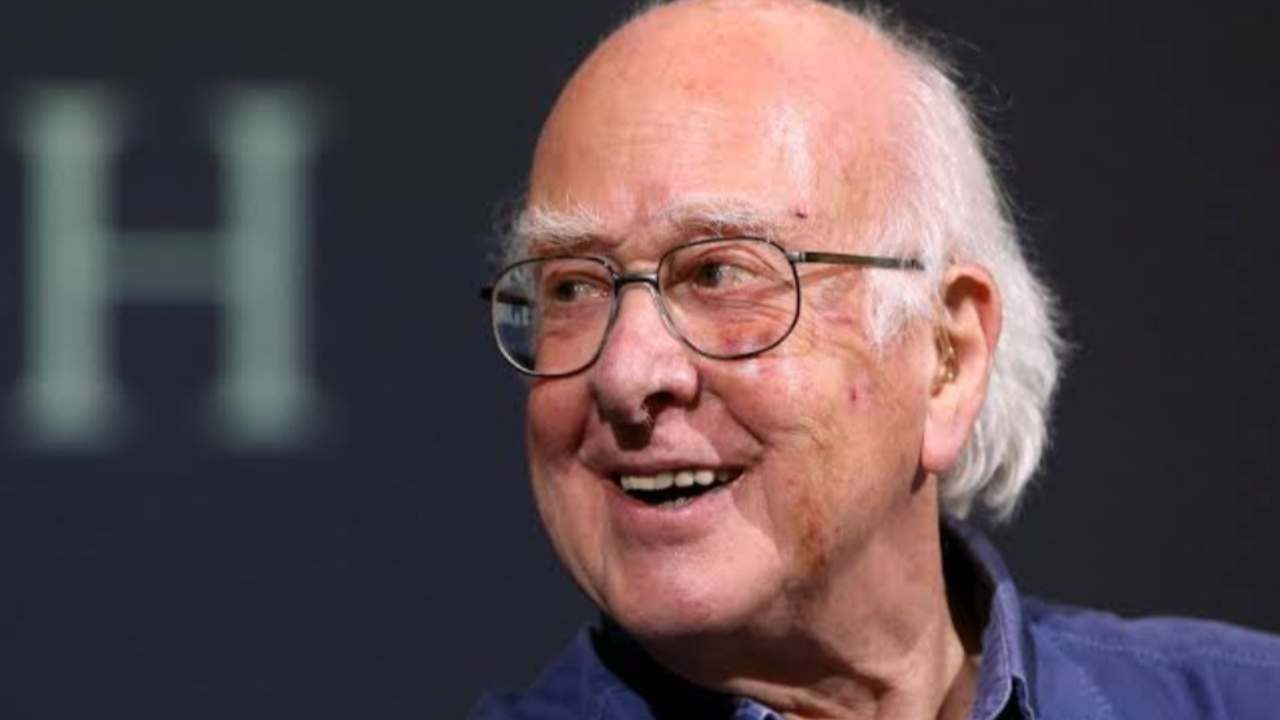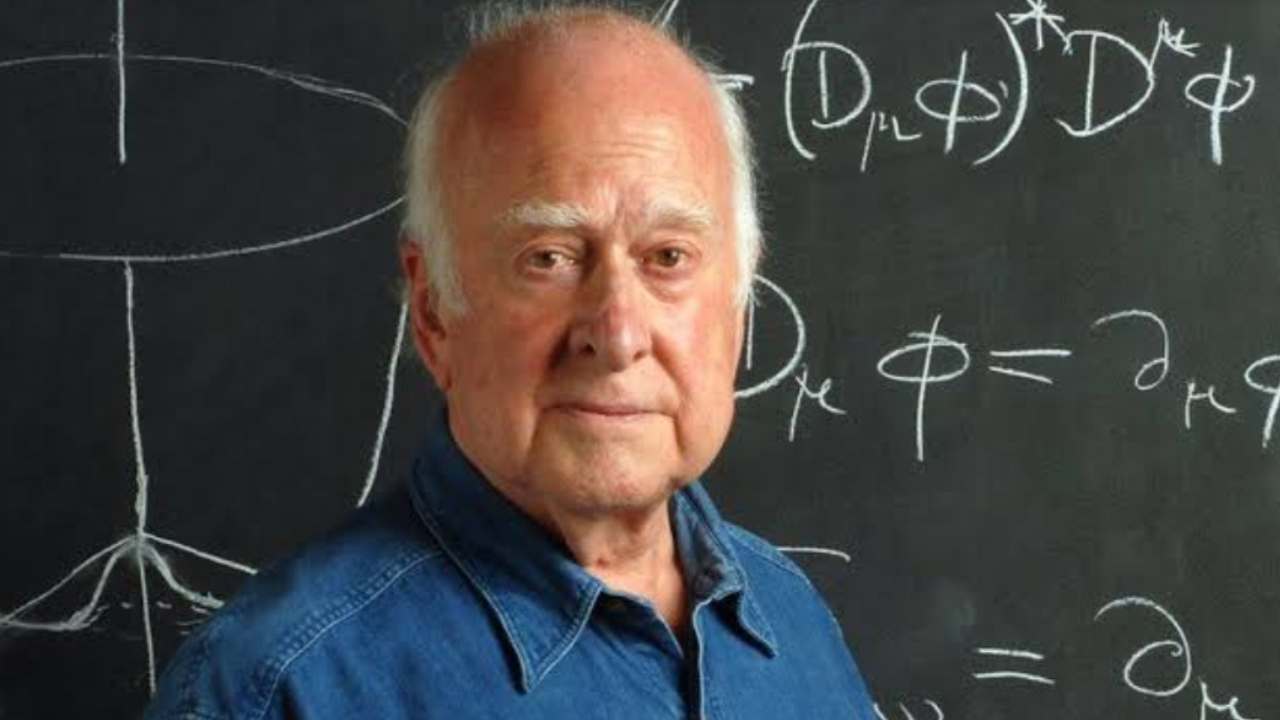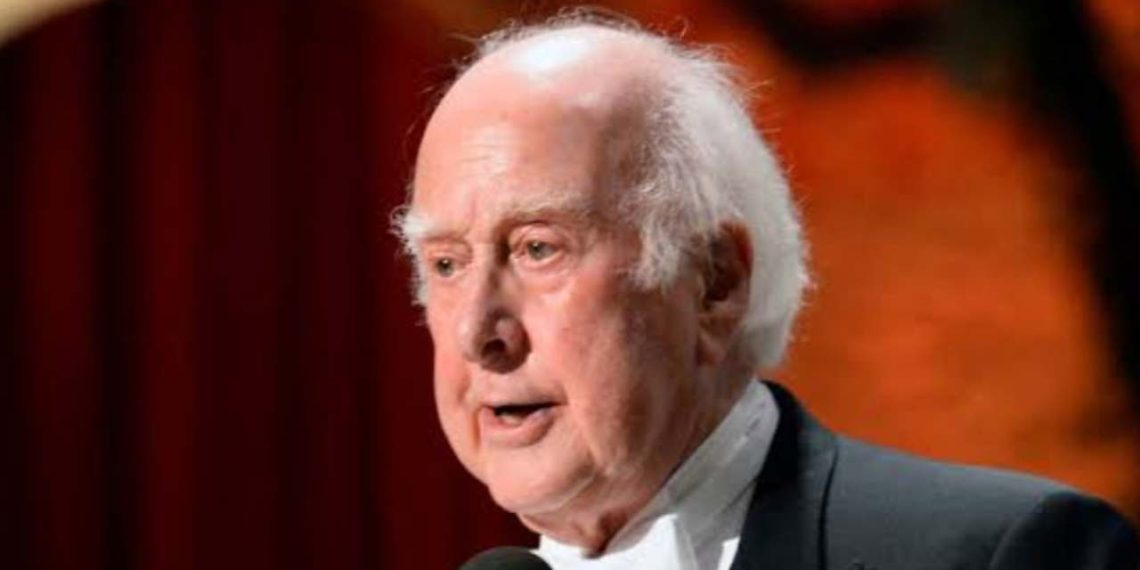Peter Higgs, a luminary in British scientific circles renowned for conceiving the concept of the Higgs boson particle, has passed away at the age of 94.
He was awarded the Nobel prize for Physics in 2013 for his revolutionary work showing how the boson helps bind the Universe together.

A statement issued by Edinburgh University confirmed his demise in the city on Monday.
It called him a “truly gifted scientist whose vision and imagination have enriched our knowledge of the world that surrounds us”.
Professor Brian Cox paid tribute to Higgs on X (formerly known as Twitter):
“I was fortunate enough to meet him several times, and beyond being a famous physicist – I think to his embarrassment at times – he was always charming and modest.
“His name will be remembered as long as we do physics in the form of the Higgs Boson.”
During the 1960s, Higgs, along with fellow physicists, started a quest to elucidate the origin of mass within the fundamental components of the Universe.

This endeavor ignited a pursuit akin to the Holy Grail of physics: the identification of a particle capable of unifying three fundamental forces – electromagnetism, the weak, and the strong nuclear forces – under a single theory.
In 2012, researchers operating the Large Hadron Collider at the European Organization for Nuclear Research (Cern) in Switzerland achieved a breakthrough by uncovering the elusive particle. This long-awaited discovery was christened the Higgs boson.
A year following the momentous discovery, Higgs’s groundbreaking contributions were honored with the Nobel Prize, which he shared with Francois Englert of Belgium.
Despite his profound impact on the field of physics, Higgs remained a modest and reserved individual, uneasy with the spotlight his theory cast upon him.
Upon learning of his Nobel Prize win, he was visibly moved, wiping away a tear as he addressed journalists, expressing,
“It’s very nice to be right sometimes.”
Alan Barr, Professor of Physics at the University of Oxford, lauded the profound influence Peter Higgs had on our comprehension of the Universe.
“He proposed the existence of a field that pervades the entire universe, from mass to particles from electrons to top quarks.”
“He was also a true gentleman, humble and polite, always giving due credit to others, and gently encouraging future generations of scientists and scholars,” he added.
Scotland’s First Minister Humza Yousaf has paid tribute to him as a “visionary whose idea, and its discovery some 48 years later, is transforming our understanding of the Universe”.





